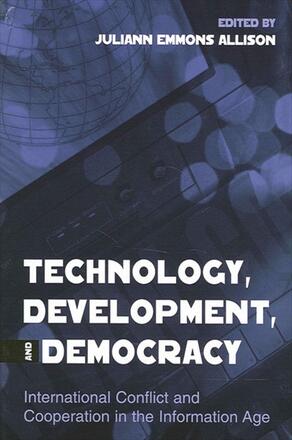
Technology, Development, and Democracy
International Conflict and Cooperation in the Information Age
Alternative formats available from:
The impact of internet technologies on international politics.
Description
Technology, Development, and Democracy examines the growing role of the Internet in international affairs, from a source of mostly officially sanctioned information, to a venue where knowledge is often merged with political propaganda, rhetoric and innuendo. The Internet not only provides surfers with up-to-the-minute stories, including sound and visual images, and opportunities to interact with one another and experts on international issues, but also enables anyone with access to a computer, modem, and telephone line to influence international affairs directly. What does this portend for the future of international politics? The contributors respond by providing theoretical perspectives and empirical analyses for understanding the impact of the communications revolution on international security, the world political economy, human rights, and gender relations. Internet technologies are evaluated as sources of change or continuity, and as contributors to either conflict or cooperation among nations. While the Internet and its related technologies hold no greater, certain prospect for positive change than previous technological advances, they arguably do herald significant advances for democracy, the democratization process, and international peace.
Juliann Emmons Allison is Assistant Professor of Political Science at the University of California.
Reviews
"This is an outstanding book, which addresses a serious gap in the existing literature on information technologies and conflict in international relations. " — Ronald Deibert, author of Parchment, Printing, and Hypermedia
"The impact of information technologies on world politics is much bandied about in scholarship and policy circles, but detailed studies are few and far between. This volume provides sorely needed foundational and conceptual work in this area. " — J. P. Singh, author of Leapfrogging Development?: The Political Economy of Telecommunications Restructuring